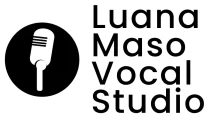Whether you’re a professional singer, a hobbyist, or someone who loves to sing in the car, it’s important to treat your voice with care. Just like an athlete stretches before a workout, your vocal cords need preparation before singing, speaking, or performing. In this post, we’ll explore the importance of warming up your voice and the difference between a vocal warm-up and a vocal workout.
Why is Warming Up Your Voice So Important?
Think of your voice as a delicate yet powerful instrument. It’s made up of soft tissues and muscles, which need preparation before being put under strain. Without warming up, your vocal cords can be less flexible and easily get overworked, leading to vocal fatigue, strain, or even injury.
Just like you wouldn’t run a marathon without stretching, you shouldn’t sing without a proper warm-up. Warming up your voice helps reduce the sense of effort required for singing, while also reducing the risk of damaging the voice.
What is a Vocal Warm-up?
A vocal warm-up is a series of exercises designed to gently prepare your vocal cords for singing or speaking. The purpose is to gradually increase blood flow to the vocal muscles and stretch your vocal cords without pushing them too hard.
A good warm-up should focus on ease and flexibility. Common vocal warm-up exercises include lip trills, humming, straw phonation, or any other type of SOVT (semi-occluded vocal tract) exercise, slides, and gentle scales that stretch the vocal cords and activate airflow.
Warm-ups should never be too strenuous or too long. They’re meant to be short, usually about 5-10 minutes, to get your voice ready for singing or speaking.
What is a Vocal Workout?
While a warm-up prepares your voice for the task ahead, a vocal workout takes things a step further. A workout focuses on building strength, flexibility, and endurance in the voice. These exercises push your vocal range and muscle coordination to their limits (but in a safe, controlled way), helping to improve your singing technique over time.
A vocal workout is typically longer and more intense than a warm-up, and it may involve exercises like scales, arpeggios, vowel combinations, sustained notes, and style-specific techniques like belting and mixing.
Vocal workouts should be done after you’ve properly warmed up your voice and should be targeted to specific goals like expanding range or improving tone and power. It’s important not to overdo it, as vocal fatigue can set in after too much intense training.
Key Differences: Warm-up vs. Workout
Here’s a quick breakdown of the main differences between a vocal warm-up and a vocal workout:
| Aspect | Warm-up | Vocal Workout |
|---|---|---|
| Purpose | Prepares the voice for singing or speaking. | Builds vocal strength, endurance, and technique. |
| Duration | Short (5-10 minutes). | Longer (15-30 minutes or more). |
| Intensity | Gentle, easy exercises. | More challenging, focused exercises. |
| Focus | Stretching the vocal cords, increasing blood flow. | Stretching vocal range, improving control and power. |
| Goal | Prevent injury, prepare for performance. | Improve vocal skills and technique. |
Incorporating Both Into Your Routine
A healthy vocal practice should include both warm-ups and vocal workouts, but they should be used at different times. Warm-ups should be part of your routine before any kind of vocal performance, whether it’s singing, speaking, or recording. Vocal workouts should be used as part of regular vocal training, ideally 2-3 times a week, depending on your vocal goals.
Always listen to your body. If you feel strain or discomfort at any point, take a break, and don’t push through pain. Your voice is a precious instrument, and taking the time to warm it up properly and train it effectively will help you maintain a strong, healthy voice for years to come.
Conclusion: Take Care of Your Voice
So next time you’re about to sing or speak for a long period, don’t skip the warm-up — and consider incorporating regular vocal workouts into your practice. Your voice will thank you for it!
If you’re unsure where to start with your vocal warm-ups or vocal workouts, I’d love to help. Book a free consultation now and take the next step toward a stronger, healthier voice!
